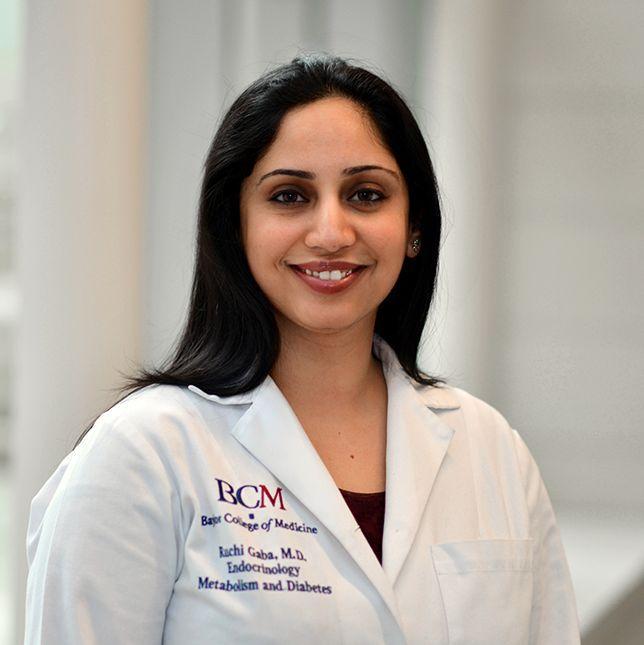
Dear Applicant,
Thank you for your interest in the Baylor Endocrinology Fellowship Program. I’m thrilled that you are considering our program as the next step in your training.
As a proud graduate of this very program, I’ve had the privilege of viewing it from multiple perspectives—first as a fellow in 2012, then as faculty, associate program director, and now as program director. I couldn’t be prouder of our section’s enduring commitment to excellence in education, patient care, and research. Our program has continuously evolved to reflect feedback from trainees and the ever-changing clinical landscape.
Even a brief overview of our curriculum reveals the remarkable breadth and depth of our training. First-year fellows rotate across five distinct clinical sites, each offering a unique and enriching experience in both inpatient and outpatient endocrinology:
- Harris Health System / Ben Taub Hospital is a busy, high-acuity county hospital and level 1 trauma center, serving as a vital safety-net institution for Houston. Fellows gain substantial exposure to endocrine emergencies on the inpatient service and manage diverse outpatient cases, including in specialty clinics focused on endocrine disorders in pregnancy, ketosis-prone diabetes, and thyroid fine needle aspiration.
- Baylor St. Luke’s Medical Center / Baylor Clinic is an 881-bed tertiary hospital known for heart, liver, and kidney transplantation. Here, fellows manage complex diabetes in the context of advanced cardiovascular disease and organ transplantation. They also rotate through the Pituitary Center, a regional referral hub for complex pituitary cases co-managed with neurosurgery. Additionally, they participate in the Multidisciplinary Thyroid and Parathyroid Center at the Dan L Duncan Comprehensive Cancer Center, where they gain experience in managing advanced and refractory thyroid cancers. Our faculty practice at Baylor Clinic offers state-of-the-art care, including expertise in insulin pumps, continuous glucose monitors (CGMs), and cutting-edge pharmacotherapy.
- MD Anderson Cancer Center is a globally recognized leader in cancer care and research. Fellows train with endocrine oncologists who specialize in endocrine neoplasia and manage endocrine complications related to cancer therapies.
- Michael E. DeBakey VA Medical Center is one of the largest VA hospitals in the nation. Fellows see a wide spectrum of thyroid, adrenal, pituitary, parathyroid, and gonadal disorders. The VA also features an active insulin pump program and is a center for cardiovascular surgery and solid organ transplantation.
- Texas Children’s Hospital offers fellows exposure to pediatric-to-adult transitions in endocrine care. Fellows gain valuable experience with type 1 diabetes, diabetes technologies, and pediatric-onset endocrine disorders in adults.
The first year of fellowship is undoubtedly intense. Fellows navigate multiple hospital systems, cross-cover each other on weekends, and manage a wide variety of pathologies. The result is an unmatched foundation in clinical endocrinology.
During the second year, fellows transition to a more research-focused schedule. With protected time and decreased inpatient responsibilities, fellows pursue a scholarly project under the mentorship of established investigators from institutions including Baylor, MD Anderson, the VA, and the Children’s Nutrition Research Center. Continuity clinic continues at Smith Clinic, and fellows may attend outpatient clinics at their research site.
Second-year fellows also have opportunities to develop skills in quality improvement or clinical education, depending on their career goals. They participate in the Department of Medicine’s Quality Academy, with the option to pursue a Certificate of Added Qualification in Healthcare Improvement (CAQHI). Those interested in clinician education may enroll in the Academy of Fellow Educators Certification Program, which offers formal training in teaching, feedback, curriculum development, and educational scholarship.
Is this program the right fit for you? Our fellows are curious, driven, and committed to learning by doing. They value diverse clinical experiences, hands-on training, and mentorship. Our alumni go on to successful careers in both academic medicine and private practice—many of our faculty, as well as those at MD Anderson, are proud graduates of this program.
Our mission is to train well-rounded, compassionate, and capable endocrinologists, and we continually strive to improve to meet the needs of our fellows. I’m deeply proud of our program, and of the extraordinary faculty who support it.
Thank you for taking the time to learn more about us. I wish you the very best in your journey ahead.








